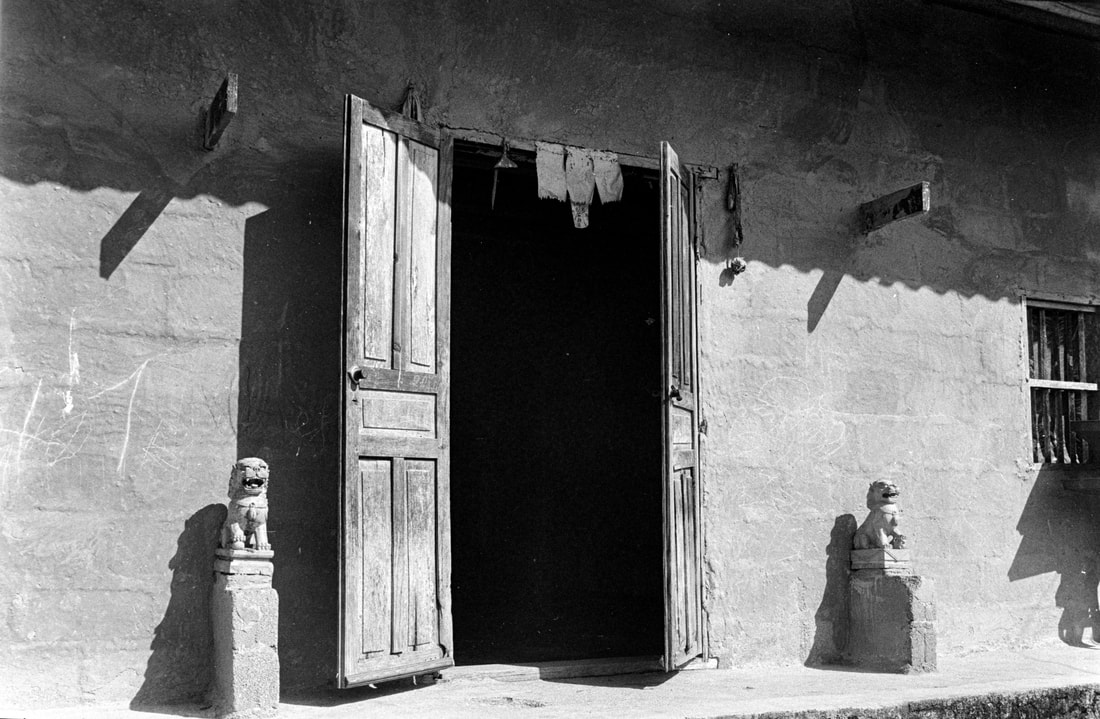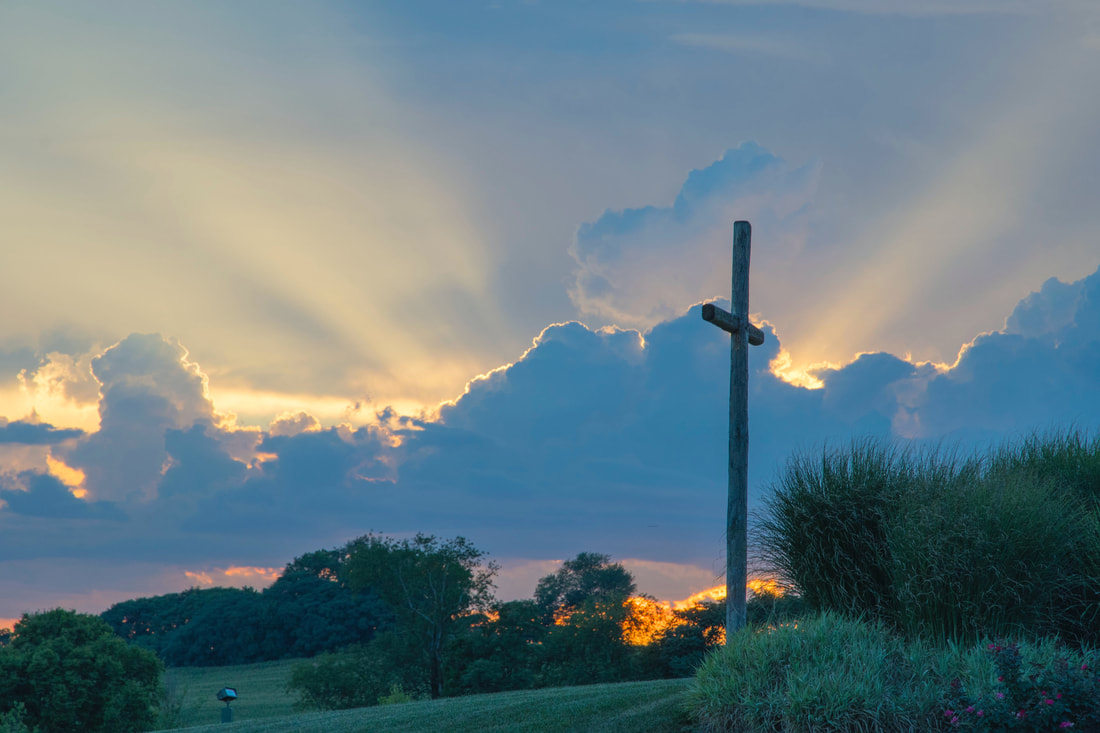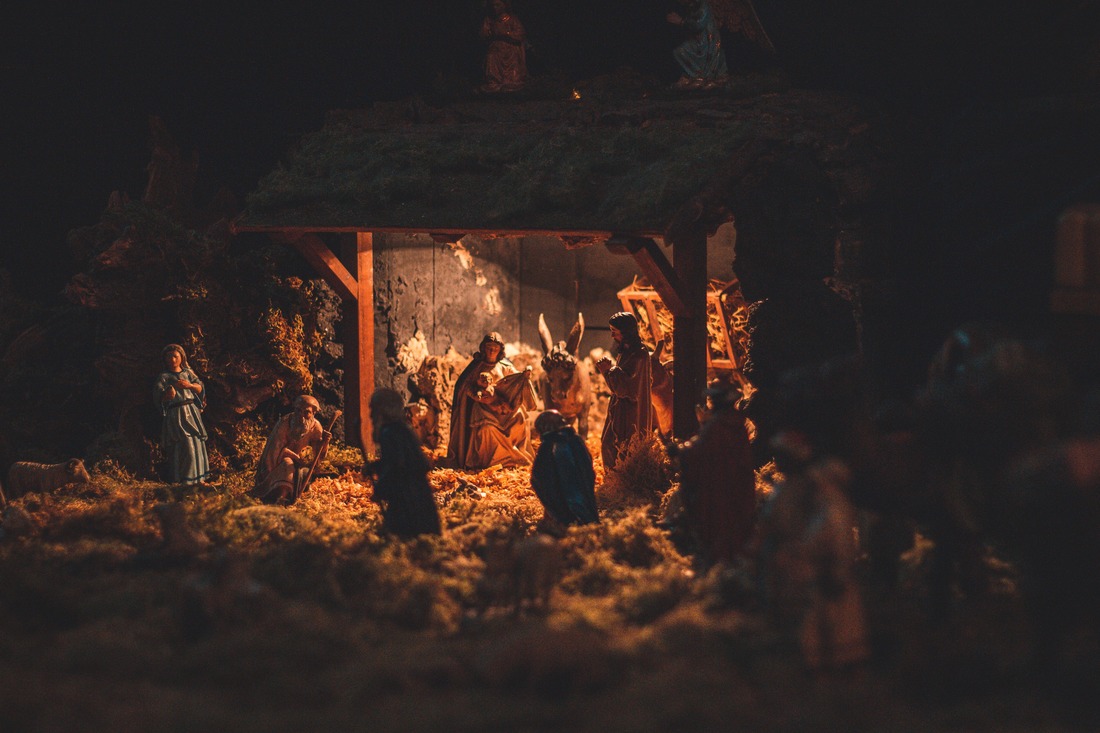|
Every four years we experience a leap year which means that we have 366 days in the year instead of 365. It actually takes 365.242190 days for the earth to orbit the sun. Without the adjustment, the seasons "drift." So, one day is added to our calendars at the end of February. The Hebrew calendar also has a leap year. However, it is necessary for their calendar to have an entire month added to it so that their holidays fall in the proper season. The Bible makes it clear that the first month (Nisan) is to occur in the spring and the seventh month (Tishrei) during the fall harvest. In addition, since the Hebrew calendar is lunar, and our calendar is solar, the leap year helps correct the imbalance between the two calendars. There are seven leap years every nineteen years in the Hebrew calendar.
The last month on the Hebrew calendar is Adar. Since this is a leap year, we have an extra Adar month. Though Purim is celebrated during Adar II, we should still connect to the aspects of this month during Adar I. Adar means strength. God tells us in Isaiah 40:29-31, "He gives strength to the weary and to him who lacks might He increases power. Though youth grow weary and tired, and vigorous young men stumble badly, yet those who wait for the Lord will gain new strength. They will mount up with wings like eagles, they will run and not get tired, they will walk and not become weary." (NAS) What a promise! Earlier in Isaiah 40 it explains that all creation should make a way for the Lord as His Word "stands forever." (Isaiah 40:8) He comes to comfort His people and assures them of this: "Behold, the Lord God will come with might, with His arm ruling for Him. Behold, His reward is with Him and His recompense before Him." (Isaiah 40:10 - NAS) The chapter goes on to rejoice in the characteristics of the Lord that include the truth that He made all creation, and that justice, knowledge, and understanding are His. Verse 18 asks an important question: "To whom will you liken God? Or what likeness will you compare with Him?" (NAS) "Lift up your eyes on high and see who has created these stars. The One who leads forth their host by number, He calls them all by name. Because of the greatness of His might and the strength of His power, not one of them is missing...Do you not know? Have you not heard? The Everlasting God, the Lord, the Creator of the ends of the earth does not become weary or tired; His understanding is inscrutable." (Verses 26 and 28 - NAS) God gives strength to us through joy. As it says in Nehemiah 8:10, "The joy of the Lord is our strength.” This word was given to God's people after Ezra the priest read the law to them. Verse 12 of Chapter 8 tells us that all the people "celebrated with great joy, because they understood the words that had been made known to them." Since God is the Word (John 1:1) this explains Psalm 16:11. "...In Your presence is fullness of joy." (NAS) Isn't it wonderful that during this leap year we can focus on having two months of strength and joy? Being in the Lord's presence is the key to both gifts. The third chapter of James in the New Testament gives us pictures of the power of our tongues. The Passion Translation is very descriptive. "Horses have bits and bridles in their mouths so that we can control and guide their large body. And the same with mighty ships, though they are massive and driven by fierce winds, yet they are steered by a tiny rudder at the direction of the person at the helm. And so, the tongue is a small part of the body, yet it carries great power! (The Aramaic can be translated, "The tongue has dominion.") Just think of how a small flame can set a huge forest ablaze. And the tongue is a fire! It can be compared to the sum total of wickedness, and is the most dangerous part of our human body. It corrupts the entire body and is a hellish flame! It releases a fire that can burn throughout the course of human existence." (James 3:3-6)
Proverbs 18:21 summarizes the verses of James in one sentence: "Death and life are in the power of the tongue, and those who love it will eat its fruit." (NAS) Let's say this another way. There are only two kingdoms: The Kingdom of Heaven or Light and the Kingdom of Darkness. When we use our tongues to speak, our words always agree with one kingdom or the other. And our words will determine whether we are blessed or cursed. It is wise for us to remember the truth that we have been made in the image of God, so we have power as He does to bless or curse ourselves or others with our tongues. When God decided to bring judgment on a rebellious nation, He frequently pronounced a curse over them. Yet the foundation of God's throne is righteousness and justice. (Psalm 89:14) He gives us opportunities to come out from under a curse and into blessings. We must also be aware that family members or associates may have pronounced curses over us. Again, God gives us a way to be free of all of them. Derek Prince's book Blessing or Curse - You Can Choose, gives us a seven-step way to move into God's blessings: 1. "Confess faith in Christ and His sacrifice on your behalf. 2. Repent of all your rebellion and your sins. 3. Claim forgiveness of all sin. (This is the greatest barrier that keeps God's blessings from us.) 'If we confess our sins, He is faithful and just to forgive us our sins and to cleanse us from all unrighteousness.' (1 John 1:9) 4. Forgive all other people who have ever harmed or wronged you. 5. Renounce all contact with anything occult or satanic. 6. You are now ready to pray the prayer of release from any curse. Here it is: 'Lord Jesus, I believe that on the cross you took on Yourself every curse that could ever come upon me. So, I ask you now to release me from every curse over my life, in the name of the Lord Jesus Christ! By faith I now receive my release, and I thank you for it.' 7. Now believe that you have received, and go on in God's blessing!” (Taken from pages 210-217 of Derek's book) God has creative ways to release blessings into our lives. We must accept that He will do so in His way and in His timing. The Lord has a storehouse of blessings for us that will help us to reach our destinies. Derek Prince says, "We must depend upon the Holy Spirit to guide us into our full inheritance and to show us how to appropriate what God has provided for us." (Page 224) In the meantime, we have the responsibility to make positive confessions that will release the ministry of Jesus to help us. Matthew 12:37 says, "For by your words you will be acquitted, and by your words you will be condemned." Here is the key to receiving God's blessing according to Derek Prince: Start with proclamation and then proceed to thanksgiving and praise. When we proclaim our faith aloud it draws the Lord into our presence and shakes the demonic forces as truth is being proclaimed. Thanksgiving and praise release God's intervention on our behalf. Romans 10:17 tells us, "Faith comes from hearing, and hearing by the Word of Christ." (NAS) Proclamation, thanksgiving, and praise help us to express and build our faith in God. Let's take the initiative in doing this. How often does a church congregation have assigned homework? Two weeks ago, our pastor, George Matthew Clash, suggested that we read Psalm 119 daily. I decided to read it in a different version each day and started reading from the Revised Standard Version Bible that I received as a teenager. Next, I read from the New Living Translation, then King James, Amplified, New American Standard, New International Version, and finally The Passion Translation. As I read, I highlighted those verses that were particularly meaningful to me in each translation.
Psalm 119 is a tribute to the Word of God presented in an orderly way. It is the longest psalm in the Bible and is divided into twenty-two stanzas, each with eight verses, and with a total of 176 verses. The Psalm is an acrostic poem where the verses of each stanza begin with a different Hebrew letter. The entire Hebrew alphabet is covered in succession from "alef" to "tau." The eight Hebrew words used to refer to the Word of God in Psalm 119 are law, commandments, ordinances, precepts, decrees, word, promises and statutes. I would like to share with you some of the verses that I highlighted: At the very beginning, the Psalmist makes it clear that God's Word provides a pathway of blessing for us. Both The King James and Revised Standard Version say the same thing in Verse 2. "Blessed are those that keep his testimonies, who seek him with their whole heart." The Passion Translation puts the verse a little differently. "What joy overwhelms everyone who keeps the ways of God, those who seek him as their heart's passion!" Verse 11 is one that I memorized as a girl: "Your word I have treasured in my heart, that I may not sin against you." (NAS) or "I have hidden your word in my heart that I might not sin against you." (NIV) I love the way The Passion Translation articulates verse 48. "I long for more revelation of your truth, for I love the light of your word as I meditate on your decrees." Verse 54 from the NAS version says, "Your statutes are my song in the house of my pilgrimage." Verses 89 and 90 are ones we should all camp on. "Forever, O Lord, thy word is settled in heaven. Thy faithfulness is unto all generations..." (KJV) The Passion Translation says it this way: "Standing firm in the heavens and fastened to eternity is the word of God. Your faithfulness flows from one generation to the next; all that you created sits firmly in place to testify of you." Michael W. Smith and Amy Grant help us to remember the words of verse 105 with their beautiful song, "Thy Word." Thy word is a lamp to my feet and a light to my path." (RSV) The Passion Translation has an interesting way to translate this verse. "Truth's shining light guides me in my choices and decisions; the revelation of your word makes my pathway clear." The New American Standard Version translates verse 137 this way: "Establish my footsteps in Your word, and do not let any iniquity have dominion over me." Several verses talk about the mercies or compassion of the Lord. Verse 156 is one such verse. "Your compassion is great, O Lord; preserve my life according to your laws." (NIV) Verse 160 in The Passion Translation says, "The sum total of all your words add up to absolute truth, and every one of your righteous decrees is everlasting." Amen! Our responsibility, as lovers of God's word, is to delight in His commands and meditate on them regularly. Then we will be walking on the path of enlightenment and blessing. "Call Grandmom!" That is what my girls, Holly and Laura, and I said when we needed prayer. My mom was a prayer warrior. She loved Jesus and truly believed Matthew 7:7. "Ask and it will be given to you; seek and you will find; knock and the door will be opened to you." She went home to meet the One who answered her prayers on Wednesday night, January 17. I want to honor my mom's life of 100 years and eight months with memories.
You could probably call my mom's ancestors pioneers as they were established in Pennsylvania prior to the Revolutionary War and helped fund a regiment of George Washington's army. English, German, and Irish blood ran through her veins. It is fitting that my mom's parents met at a Brethren Church in Philadelphia. They were a prosperous and generous couple until mom's dad died when she was seven years old. This life event threw my mom, her older brother, and my grandmother into poverty. Even though my grandmother went to work, the family was dependent on assistance from friends at their church. Spam (process meat) was frequently on the menu, and hand-me-down clothes were worn. But these "momentary troubles" did not overcome this hopeful family. My mom was blessed with a high IQ and graduated from Abington Highschool with honors. After attending Peirce School of Business, she worked as the secretary to the President of Lehigh Coal and Navigation Company. Later she became the secretary to the Superintendent of Schools at Abington School District. She was recognized for her attention to detail in every endeavor she accomplished and closed out her career as a proofreader of legal advertising for the Montgomery Newspapers. Even recently she was proofreading the programs for the chaplain at the community where she lived. I will be eternally grateful to my parents for the firm foundation they established for our family by raising us in a Christ-centered atmosphere. My brother, Arthur, and sister, Mary Lou, and I, Joan, were secure in the love they poured on us. Mom and Dad were active members of the First Baptist Church of Glenside where mom taught Sunday School, sang in the choir, and was active in Women's Fellowship. She was an officer of the Glenside-Weldon PTA and volunteered with Girl Scouts and Cub Scouts. Most importantly, she was a faithful wife to her husband, Ken Miller, and loving mother of her children. It is my fondest memories of Mom that will sustain me in the future. She was always there for us in a multitude of ways, and the environment in our home helped us prosper. We could count on a nightly family dinner, complete with dessert. We talked about our days around the family table. We expected my dad to greet every person that came to church on Sunday and would eventually hear Mom's warning as we waited to go home: "Ken, the roast is going to burn!" Mom and Dad led by example, being kind and generous to anyone in need. My mom's intellect served her well when she was helping us with homework or as she taught Bible studies. Our family vacations to Stone Harbor, NJ, were something we anticipated yearly. Our shore adventures were fun and memorable. One of our biggest family treats was our visit to the SPCA to get a puppy. Frisky, our puppy, came home with a virus. Mom nursed him back to health with her homemade chicken broth. Twenty-eight years ago, my parents moved to an Acts Community for senior living called Springhouse Estates where they participated in many of the activities provided. Mom was known for her sharp mind up until her death. She was also noticed for the stylish way in which she dressed and had a collection of shoes that would be the envy of any fashion designer. Mom was organized to a fault, and we discovered that she wrote her own obituary. She also left us some writings that she would like us to read at our family gathering to remember her. They include The Lord's Prayer, Psalm 23, and a poem written by Ellen Brenneman called "His Journey's Just Begun." In part, it says, "Don't think of him as gone away. His journey's just begun. Life holds so many facets; this earth is only one...And think of him as living in the hearts of those he touched...for nothing loved is ever lost and he was loved so much." My family received a gift from God in that we were able to celebrate 100 years of a life well lived with Mom on May 18, 2023. Her two great grandsons, Jack and Ben, joined the party. For them and all of us, she left a magnificent legacy. May we also leave an exceptional legacy for those who will follow us. Shevat, the eleventh month on the Hebrew religious calendar, usually occurs during January and February on our calendar. Its name has an interesting origin in the Akkadian language. The Jews became familiar with it while they were in captivity in Babylon. Its meaning, to strike, refers to the heavy rains that pour down during the month. The constellation in the sky during Shevat corresponds well with the meaning of the month's name. It is Aquarius, the water bearer. The first time Shevat is mentioned by name in the Bible is in the book of Zechariah, Chapter 1, Verse 7: "On the 24th day of the eleventh month, the month of Shevat, in the second year of Darius, the word of the Lord came to the prophet Zechariah..."
Occurring in the middle of this month is what the Jews call Tu B'Shevat or The New Year of Trees. Thus, Shevat is known as a month of renewal, rebirth, revival, and regeneration. The New Year of Trees occurs on the fifteenth day of this month and is considered a minor holiday in Israel. Dried fruits are always on the menu for this celebration. Also, placed on a plate would be the fruit of the seven species mentioned in the Torah: wheat, barley, grapes, figs, pomegranates, olives, and dates. Jews that celebrate Tu B'Shevat are reminded of their duty to care for the natural world. Shevat 15 was the original date when tithes from fruit trees were to be given to the priests. Rabbis determined that fruit which blossomed before the 15th of Shevat would be called produce of the previous year. The fruit that blossomed before this date was produce of the rains from the previous year and should be tithed along with the crops of the previous year. The New Year for Trees date is also used for the purpose of calculating the age of trees for tithing. According to Leviticus 19:23-25, the fruit from trees may not be eaten during the first three years. On the fourth year, the fruit must be given to God. By the fifth year, one may eat the fruit of their trees. It is significant that the Bible talks about the way humankind should be rooted and grounded and that through the cultivation of strong roots of faith, we can produce fruit for the Kingdom of God. Both Jeremiah 17:7-8 and Psalm 1:3 instruct us to be like trees "planted by streams of water, which yield its fruit in season and whose leaf does not wither..." The purpose of a tree is to provide fruit to bring life to others. We also have been blessed to be able to give our spiritual fruit to others so that they can grow in Christlikeness. Hope is given to the people of Israel and all of us who are grafted into the family of God through the words of the prophet Jeremiah. "In those days and at that time, I will make a righteous Branch sprout from David's line; He will do what is just and right in the land. In those days Judah will be saved, and Jerusalem will live in safety. This is the name by which it is called: ‘The Lord Our Righteous Savior.’” (Jeremiah 33:15,16) How exciting it is that we have been grafted into the olive tree to share in the nourishing sap from the root! (Romans 11:17) We are called to be trees "planted by the water that never fail to bear fruit.” (Jeremiah 17:8) In addition, we are called to be "...oaks of righteousness, a planting of the Lord for the display of His splendor." (Isaiah 61:3) Let's celebrate this month of Shevat by rooting deeply into the soil of the Lord's truth so that we bring forth fruit and display His righteousness. What an amazing display of God's glory I saw early on Friday morning! Three of His heavenly creations appeared at the same time. The crescent moon was still shining in the southern sky. To the left of it was the morning star, brightly flickering. Below both celestial bodies was the horizon, splashed with the vibrant pink-orange colors of the sunrise. This spectacular array drew me in and brought me into a moment of contemplating the Lord's majesty and power and glory.
A writer's technique called "personification" is used in the Bible, especially by the writers of Psalms and Isaiah. Psalm 148:1-6 gives us a wonderful example of this: "Praise the Lord from the heavens, praise Him in the heights above. Praise Him, all His angels, praise Him, all His heavenly hosts. Praise Him sun and moon, praise Him, all you shining stars. Praise Him, you highest heavens and you waters above the skies. Let them praise the name of the Lord, for He commanded, and they were created. He set them in place for ever and ever; He gave a decree that will never pass away." The Friday morning sky seemed to be giving the Lord praise just as this Psalm describes. It is interesting to note that the Lord refers to Himself as the Morning Star. "...I am the Root and the Offspring of David, and the bright Morning Star." (Revelation 22:16) The morning star announces the beginning of a new day and signals the end of the night. Think about how God introduced the Gentile population to The Morning Star, the Light of the World. He led the Magi by a star to visit the One who would be a light to those in darkness. Psalm 74:16 declares, "The day is yours, and yours also the night; you established the sun and moon." God separated the day from the night with the sun and moon, and the canvas for the celestial bodies is the sky that He paints uniquely every single day. The prophet Isaiah compares the sun and moon to the Lord, "The moon will be abashed, the sun ashamed; for the Lord Almighty will reign on Mt. Zion in Jerusalem, and before its elders, gloriously." (Isaiah 24:23) I have decided that my favorite verses to contemplate come from Psalm 8. "O Lord, our Lord, how majestic is your name in all the earth! You have set your glory above the heavens. From the lips of children and infants you have ordained praise because of your enemies, to silence the foe and the avenger. When I consider your heavens, the work of your fingers, the moon and the stars, which you have set in place, what is man that you are mindful of him, the son of man that you care for him?" (Psalm 8:1-4) This is an amazing truth! When we compare God's majesty and power to our humanity, it is astonishing how important we are to Him in His great scheme of the world. The heavenly delights we see are a reminder of God's great love for us. The moon and sun herald the day and night and tell us that seasons change, while the Morning Star reminds us that the season of darkness will come to light. The Lord will prevail. He will guide and direct us. We must join the heavenly hosts in praise to the God of the universe. A new year on the Gregorian calendar is beginning, 2024. On the Hebrew calendar the new civil year of 5784 began in September. You will notice that the last number of the year on each calendar are the same. Those who understand Hebrew numerology pay particular attention to this number because it can help them determine what could be in store for us in the year to come.
The Hebrew word for four is Dalet, which is a picture of a door. Thus, prophets have been declaring that this is the year of the open door. They believe that the door is being opened for us to have a deeper relationship with the Lord and a deeper understanding of His Word. Of particular interest to me is Isaiah 22:20-24. "In that day I will summon my servant, Eliakim son of Hilkiah. I will clothe him with your robe and fasten your sash around him and hand your authority over to him. He will be a father to those who live in Jerusalem and to the house of Judah. I will place on his shoulder the key to the house of David: What he opens no one can shut and what he shuts no one can open. I will drive him like a peg into a firm place; he will be a seat of honor for the house of his father. All the glory of his family will be hung on him..." We should delve deeper into the picture that this scripture paints. First of all, Eliakim means "raised up by God," and he is a picture of Jesus who was raised up by the power of God to rule over His house. Hilkiah means "my portion is Yahweh." It is Jesus who has unlimited control that has been given to Him by His Father. According to the footnote for Isaiah 22 in The Passion Translation, the doors that are being opened (loosed) are doors of "revelation, treasure, favor, and opportunity. When He closes (binds) those doors, no amount of human striving can open them." The key to the house of David is a Kingdom key. The Church of Philadelphia received a letter that repeated the prophetic words from Isaiah 22. "These are the words of him who is holy and true, who holds the key of David. What he opens no one can shut, and what he shuts no one can open. I know your needs. See, I have placed before you an open door that no one can shut..." (Revelation 3:6-8) Also, we should note that Jesus used similar words to illustrate the authority He was given by God that He will transfer to His disciples. "I will give you the keys of the Kingdom of heaven; whatever you bind on earth will be bound in heaven, and whatever you loose on earth will be loosed in heaven." (Matthew 16:19) Keys represent spiritual authority and power. They are needed to open doors. Just as Jesus gave His disciples this authority to preach the Gospel and bring others into His Kingdom, He gives these keys to His Church. The key to the house of David would be a heart of worship that overcomes the things of this world. It is worship that unlocks truth. As Believers in Jesus, the Church has a responsibility to unlock truth by using the keys we have been given. He has tasked us with bringing the Kingdom of Heaven to earth and has empowered us with Spiritual authority to carry out His mandates. 2024 brings us new opportunities. We must look for the doors that God is opening and closing in our lives, and strategically position ourselves to walk through the openings. He has a unique part for each of us to play in His Kingdom work. He is ready to equip us with the wisdom and knowledge we will need to conduct His plans for this season. In addition, as we walk through the open doors that the Lord is presenting; we will be coming into the fulfillment of our destinies Prophecies abound in the Old Testament about Christ's birth, life, and death. One that stands out is Psalm 22, because it blends predictions of both of Messiah's comings. It reminds us of His birth and that the birth of Yeshua, our Savior, was a precursor to His death. It gives a detailed description of the horrific death of Jesus on the Cross. Footnotes in The Passion Translation of the Bible tell us that 33 prophecies from Psalm 22 were fulfilled when Jesus was on the Cross. I find this particularly fascinating as Jesus lived on the earth for 33 years. Finally, it prophecies the birth of sons and daughters of the Lord, spiritual seed who will serve the Lord.
As we contemplate the birth of our Savior and rejoice in HIs coming during this season, we must remember what the Lord sacrificed in the humility of coming to earth as a baby. At his birth He was wrapped in cloths like the lambs who would be sacrificed at the Temple. Afterward He was laid in a manger (a feeding trough). I wonder about the level of consciousness that Jesus had while lying in the manger. Was He contemplating what would happen to Him in 33 years? Jesus would be moved from the manger to a cross. Later He would remember His Father's care for Him as a baby. "Lord, you delivered me safely from my mother's womb. You are the one who cared for me since I was a baby. Since the day I was born, I've been placed in your custody. You've cradled me throughout my days. I've trusted in you, and you've always been my God. So don't leave me now; stay close to me! For trouble is all around me, and there's no one else to help me." (Psalm 22:9-11 - TPT) The description of the horrors perpetrated against Jesus are not for the faint of heart. Our minds cannot comprehend the torture He endured. Jesus cried out, "But look at me now; I am like a woeful worm, crushed, and I'm bleeding crimson. I don't even look like a man anymore. I've been abused, despised, and scorned by everyone..." (Psalm 22 6,7 - TPT) That peaceful manger scene we look at during the Christmas season would change as the devil plotted to destroy the Son of God through cruel and calculated means. There is hope revealed in the prophecy of Psalm 22. Between verses 21 and 22 the powers of darkness have been defeated and the glorious resurrection of Jesus took place. "Save me from all the power of the enemy, from this roaring lion raging against me and the power of his dark horde. I will praise your name before all my brothers; as my people (The Church) gather I will praise you in their midst." (Psalm 22:21, 22 - TPT) The Lord's desire for intimacy with the individuals He created was accomplished as He brought Jesus from the cradle to the Cross. We, His spiritual children, are included in the prophecy: "From the four corners of the earth, the people of the world will remember and return to the Lord. Every nation will come and worship Him. For the Lord is King of all, who takes charge of all the nations...They will come and worship this worthy King! His spiritual seed shall serve Him. Future generations will hear from us about the wonders of the Sovereign Lord. His generation yet to be born will glorify Him. And they will all declare, 'It is finished!'" (Psalm 22:27-31 - TPT) We are His spiritual seed! Our celebration of the birth of Christ must include the celebration of His death and resurrection. Our responsibility as His seed is to be rooted and established in His love and to grow in that love so that we can spread it throughout our communities. We must understand that the manger of His love will lead us to our own cross that brings with it death and resurrection life. During this season, may God pour out His abundant love on us so that we are filled with wonder and awe at the plan of God for our salvation. We cannot contemplate the birth of Christ without looking to His death and resurrection. They will forever be joined together with the overarching purpose of Love. Love brought Jesus to earth so that He could demonstrate the personality of Father God and then pay the penalty for our sins. Like the sacrificial lambs offered as sin offerings, He had to become as one of them—spotless and pure. He was the only acceptable offering.
Jesus is called the Son of God and the Son of Man. He shared God's nature and represents His intentions. "This is how God showed His love among us: He sent His one and only Son into the world that we might live through Him. This is love: Not that we loved God, but that He loved us and sent His Son as an atoning sacrifice for our sins." (1 John 4:9, 10) Jesus is God in His mercy form. He came to satisfy the justice of God. Jesus Himself told us that He is the Good Shepherd in John 10:11. "I am the good shepherd. The good shepherd lays down his life for the sheep." We should be interacting with this Shepherd King. "My sheep listen to my voice; I know them, and they follow me. I give them eternal life, and they shall never perish; No one will snatch them from my hand." (John 10:27, 28) God allowed the prophet Ezekiel to identify the Lord as Israel's Shepherd. "'You are my sheep, the sheep of my pasture, and I am your God,' declares the Sovereign Lord." (Ezekiel 34:31) The prophet Isaiah also explains what is to come. "Therefore, the Lord will give you a sign: The virgin will conceive and give birth to a son and will call him Immanuel." (Isaiah 7:14) When an angel of the Lord appeared to Joseph to confirm that Mary would conceive a son who comes from the Holy Spirit, we are told, "All this took place to fulfill what the Lord had said through the prophet." (Matthew 1:22) We are encouraged by Jesus Himself in John 15:9. "As the Father has loved me, so have I loved you. Now remain in my love." Immanuel is such a comforting name for Jesus who is "God with us." In order for Jesus to be "God with us," He had to humble Himself to come to earth so that He could become one of us. He came not just to be with us, but to be our Savior. His ministry on the earth would only last for three years. The culmination of that time was at the end, when He willingly died for our sins so that He could be our Savior. Not only has He saved us, but He also redeemed us. He came to reverse the curse of sin and death and to free us from the power of evil. That is why He has the name Redeemer. As we can see from some of the names Jesus is called, He came to earth to fulfill the mercy of God. He is the sharer of God's nature as the Son of God. His role as our Good Shepherd and Savior has been accomplished, and His title, Redeemer is still being accomplished. Romans 8:34 assures us that, "...Christ Jesus who died--more than that, who was raised to life--is at the right hand of God and is also interceding for us." What part does God want us to play in all of this? We should see that as children of God, we are also being sent. "As the Father has sent Me, I also send you." (John 20:21) This season should be one of great awe and wonder for us as we contemplate the miraculous events of our Savior and Redeemer's life. This should also be a season of great gratitude for the humility and love that has been shown us. All praise and honor belong to Him. "Command the Israelites to bring you clear oil of pressed olives for the light so that the lamps may be kept burning...Aaron and his sons are to keep the lamps burning before the Lord from evening till morning. This is to be a lasting ordinance among the Israelites for the generations to come." (Exodus 27:20,21) This command from the Lord is repeated in Leviticus 24:2-4. "Command the Israelites to bring you the clear oil of pressed olives for the light so that the lamps may be kept burning continually...Aaron is to tend the lamps before the Lord from evening till morning, continually. This is to be a lasting ordinance for the generations to come. The lamp on the pure gold lampstand before the Lord must be tended continually."
Keeping the light burning was the main responsibility of the priests in the Levitical tribe. We can well imagine the horror of the Jews when their Temple in Jerusalem was taken over by Antiochus Epiphanes and desecrated. Antiochus demanded loyalty to the Greek culture from the Jewish people. He went as far as to erect a statute of himself in each town in Israel and demanded the Jews to bow down and worship it. A family of Levitical priests called the Maccabees, led by Mattathias, refused to comply, and began a revolt. Guerrilla warfare was waged for several years beginning in 167 BC. Through their hard-fought battle, the Maccabees defeated the Syrian Greeks and retook Jerusalem and the Temple. Since the altar had been defiled by the sacrifice of a pig, they removed all of its stones and built a new one. Then, they set about to relight the seven-branched menorah with only one day of oil remaining. To their delight, it burnt for eight days, the length of time needed to cure a fresh batch of olive oil. This victory has been celebrated ever since at The Festival of Hanukkah, which is also called The Festival of Lights. Actually, Hanukkah means Dedication, as the Jews rededicated the Temple and its service to God. Since the lampstand remained lit for eight days, Jewish families light their miniature menorahs that now have eight branches plus one additional elevated branch in the center. The center candle, called The Shamash or Servant, is used each night to light the other candles. This tradition has significance for those who are Christians. There is symbolism in this ceremony that may be missed by those who do not know Messiah, Yeshua. The center candle represents Him. Is it not fitting that the Shamash lights all the other candles? Let us also remember that the number eight stands for new beginnings and sanctification. As the Servant of the Lord, Jesus is the Light of the World. He is the one who illuminates everyone. As the eternal flame that does not go out, He continues to light one candle at a time until all of us are lit. Jesus celebrated Hanukkah as it tells us in John 10:22. It was during this festival that he declared His divine identification. Since the physical Temple no longer exists, Believers in Jesus have become the Temple of God (1 Corinthians 6:19), each illuminated by the Shamash. During this season of Hanukkah, we must rededicate our temples through the burning of our oil and the shining of our lights. It is the oil of the Holy Spirit that ignites our lights. "...Let your light shine before others that they may see your good deeds and glorify your Father in heaven." (Matthew 5:16) Our oil supply is unlimited and will keep our flames burning brightly in our hearts endlessly. |
Joan E. MathiasCategories
All
Archives
April 2024
|










 RSS Feed
RSS Feed